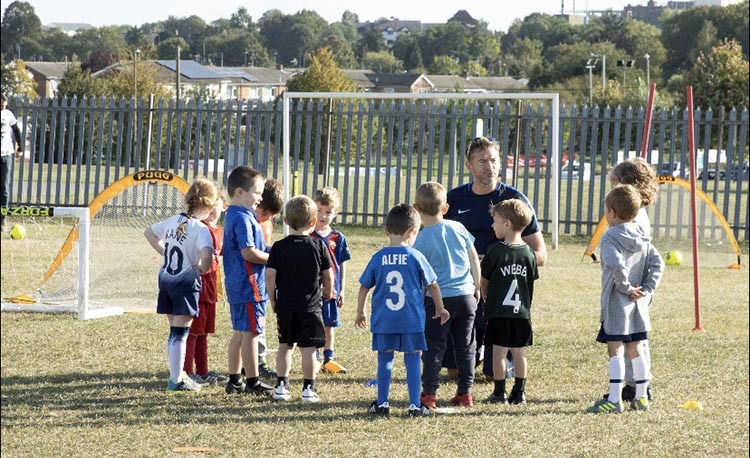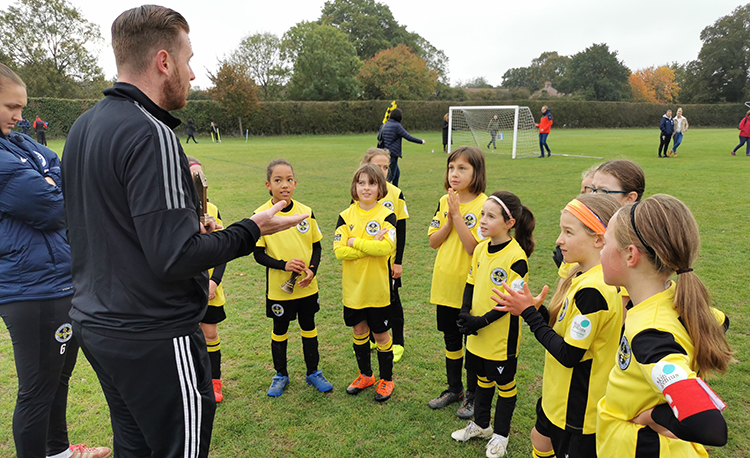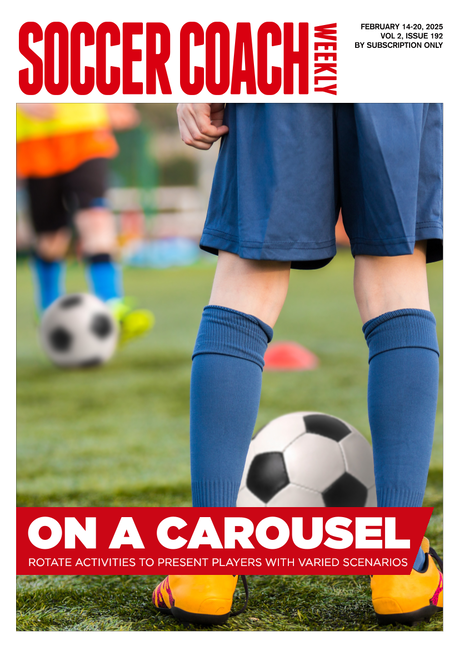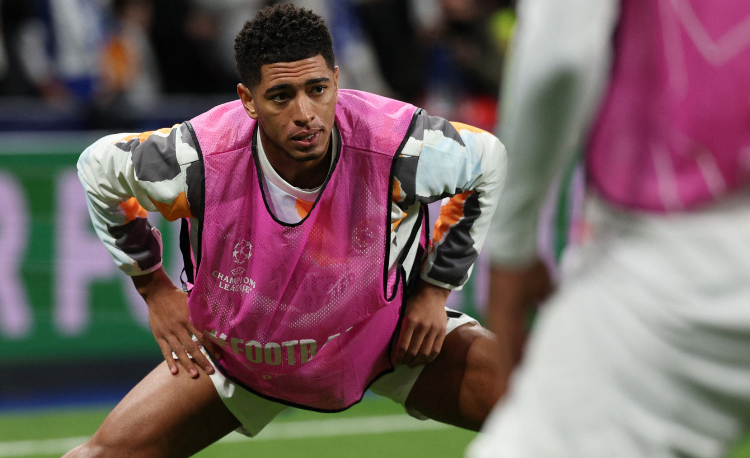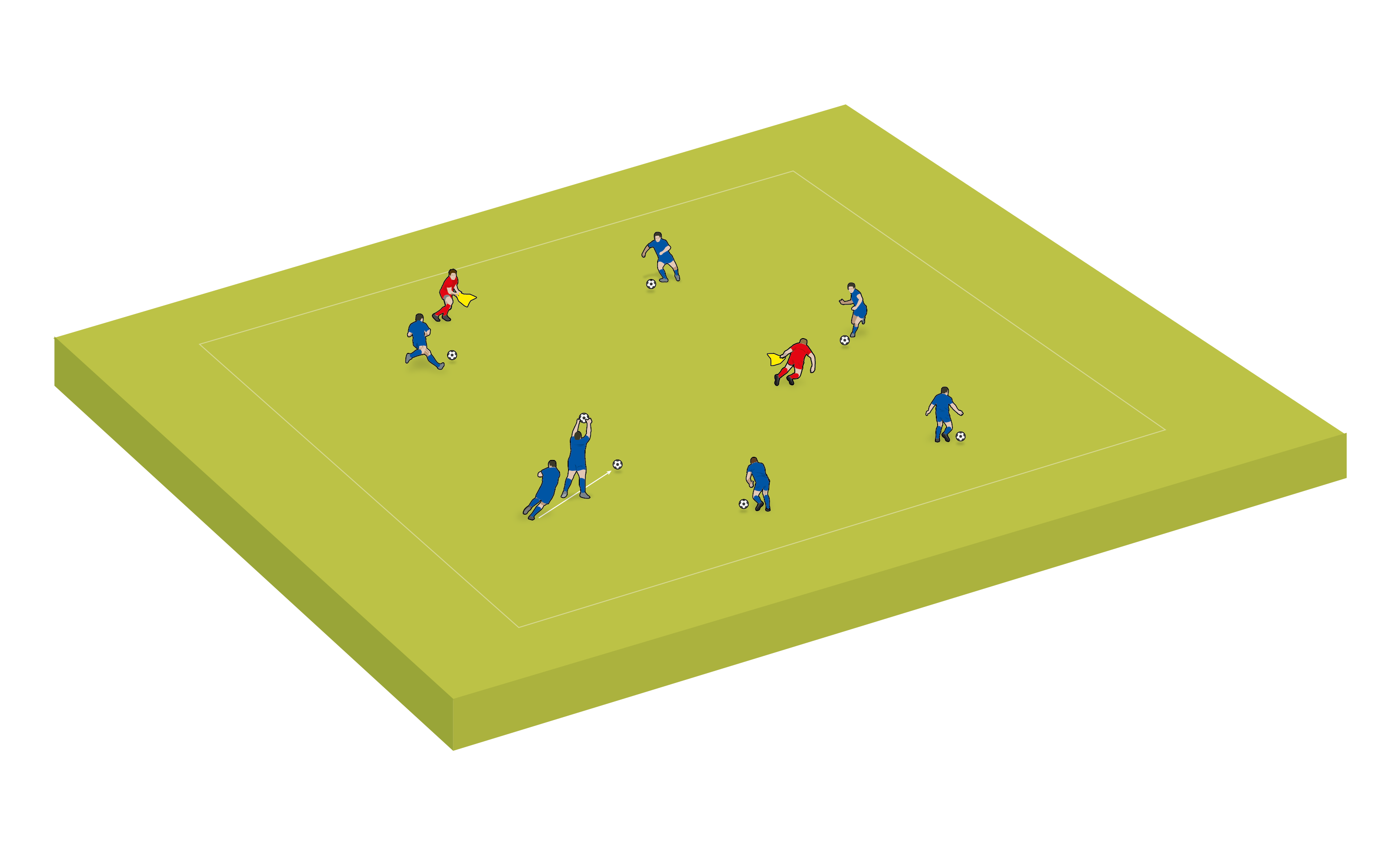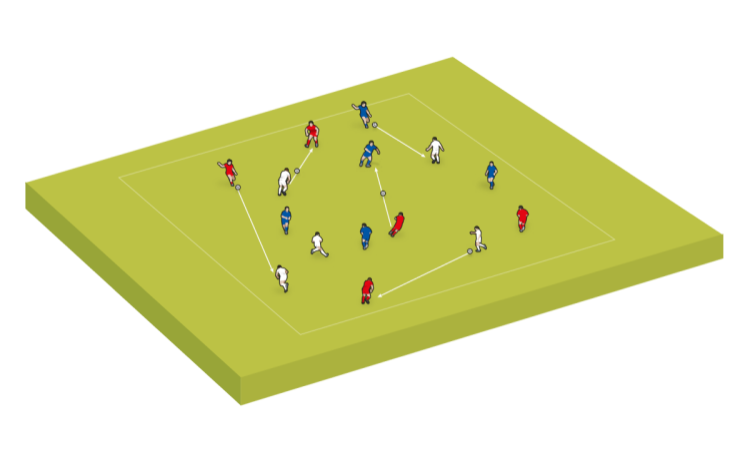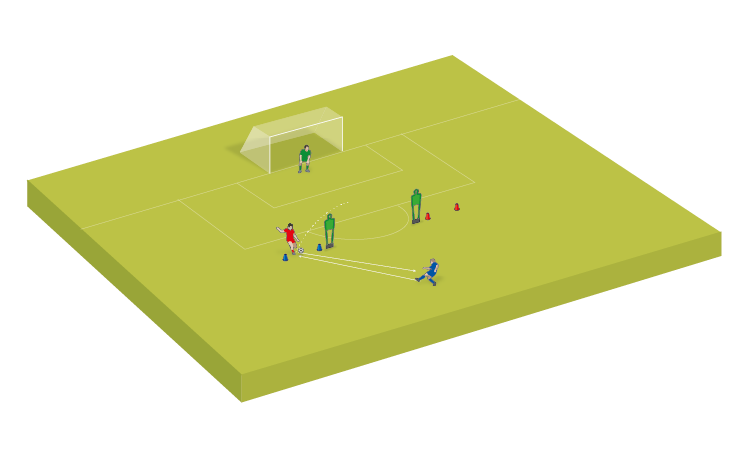Managing matchday to suit your players
FA coach development officer Sarah Lowden tells Steph Fairbairn about her approach to planning, equal playing time, team-talks and game instructions
Matchdays are a key part of the coaching week and can be exhilarating, daunting and stressful all at once. For the players, those emotions are amplified.
It is the coach’s role to make the matchday experience as safe and enjoyable as possible for all. But how do we go about doing that?
We asked Sarah Lowden, a Uefa A coach and a regional coach development officer at the Football Association, for her take.
Sarah - who has previously coached at the Reading and Burton Albion academies and Sunderland girls’ regional talent centre - shares some of the key things coaches need to consider…
SCW: Matchdays require a lot of planning. What are the key elements that coaches need to think about?
SL: “This is something I discuss when I deliver a workshop for grassroots coaches - what do we use matchday for?
"That might sound a very simple question but I think we need to be mindful as coaches of what we do, how we see matchday, and of course, how we plan for it.
"I appreciate that, at grassroots level, we might not always have the time to do it. But if we can plan ahead, or have people that are going to help us manage that matchday - because we want the players to have the best experience possible, especially in grassroots and developmental football - then there’s some tips and tricks I think we can use. But it all comes from the planning.
“Be really clear what your matchday is for - hopefully, it is going to be a continuation from what you’re working on in the week, to the matchday and back into training.
"They’re not two separate events, where we do something in training and then, on matchday, coach behaviours change, expectations change and the environment changes for the players and parents.
"They have to be linked to give some consistent behaviours and also for you as the coach to have a stress-free experience as much as possible.”
SCW: What sort of things should we be thinking about when we’re planning?
SL: "Understand what your club stands for. If I’m at a grassroots club where we believe in every player getting equal playing time, how do you actually manage that? How do you manage parents on the sideline? How do you manage your own behaviours?
"It’s about establishing rules as a club so that everybody has a clear expectation..."
"For example, is it all about winning? Is my my behaviour on the sidelines going to be about that and about performance?
"Or is it about, ’I’m just going to let the kids get on with it. I’ve planned where they’re going to go, I’ve planned when they’re going on, and whether we’re 10-0 up or 10-0 down, it’s going to stay the same’?
“It’s about establishing those rules as a club and with the players, so that everybody has a clear understanding and expectation of how that works, especially in grassroots.
"If you do believe in equal game time, that has to be shared - you’ve got to plan for it.
“Even if you’re in the [pyramid] tiers, where it’s more about performance, you can still plan really well for your matchdays.
"If you’ve got one or more coaches with you; what’s everybody’s job? You as the lead coach should not be thinking, ’I’ve got to do this, I’ve got to do the warm up, I’ve got to manage this’. You can set out some really clear roles as staff.
“Also, a key question for me would be, when you’re observing the match, is: what are you looking for versus what are you looking at? They are two different things.
"Again, it’s about how we set these roles to help link to our week’s worth of training, and then hopefully longer term for the season.”
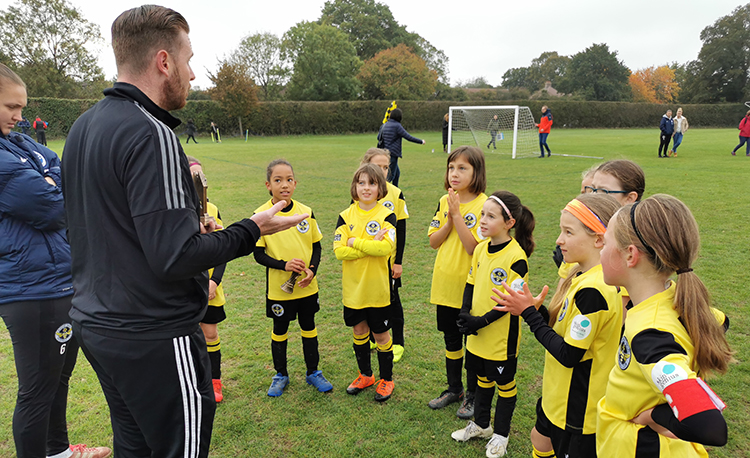
SCW: Can you expand a bit on that link between training and matchday? What do we need to think about in linking the two?
SL: "It is to help you to be more efficient with your time but, more importantly, it’s for the players’ learning.
"Let’s say we are working on playing forward. If that is the topic we deliver on Tuesday [in training], hopefully the things you’re going to look for on matchday relate to that topic. That helps you give some really useful feedback to the players.
"Even better, if I can go from the Tuesday, to the Sunday [game] and then back to the Tuesday, where we might do a similar topic, there might be some slightly different learning activities, but it helps players join the dots from week to week.
"Whereas, if you’ve done playing forward in training and then all you’re looking at is how many goals you score on matchday - and that is all you give feedback around - how is that going to make sense for the players and where they’re at in their journey?
“As a coach, you can observe what has happened on a matchday, what you might need to still cover and that’s your session plan for Tuesday.
"You’re not having to think about separate things all the time - it’s a continuation for the players and for you as well.”
SCW: What about the team talk? What kind of messages should we be delivering?
SL: "It’s all about keeping things consistent. It might be one thing that you have taken from the Tuesday and put into matchday - ’Remember what we finished on, remember what the messages were, remember what your role might be’.
"Keep it really simple. Understand you’re not going to get everything [across] in one matchday, it might take six, it might take 60.
"Just be patient, try not to set the bar too high, be positive and understand that some players will arrive super excited and really confident, and some will arrive at the complete opposite end of that scale.
"The more simple and concise you are with your information, the better, because that’s less things for them to have to think about.
“Maybe you can give one player lots of information, and they can handle it. Maybe you need to give less to another. But try not to overload them, because there’s a lot going on on a matchday."
SCW: What’s the right level and tone of information you want to give during a game?
SL: "I think this really depends on your group. Some players will tell you if they need it, some won’t. Some will take it in, some won’t. So learn about your players, what they want and what they need.
"The whole point of the game is to help players solve problems for themselves..."
“For example, on one of the teams I coach, if there’s a break in play, one of the players will come and ask me, ’Sarah, anything to say? Anything I’ve missed?’.
"The others just want to come off, get a drink and they’re not really bothered - maybe they’re in their own thoughts. It’s just trying to understand what they need on the matchday.
“If we’re constantly shouting instructions from the sideline, what happens when we’re not there anymore? Or what happens when they no longer get that information? How are they going to know how to solve problems if all they rely on is what the coach says?
"The whole point of the game is to help players solve problems for themselves and have thinking skills.
“If we’re what we call ‘PlayStation coaching’ and telling them every decision - like pass, run, shoot, move - how are they ever going to learn to do it for themselves?
"Our job on matchday isn’t to control the players. We want them to experience the matchday, enjoy it, learn from it, and hopefully come away saying, ’I learned this today’. It’s got to be a process.
“When you’re trying to learn something new, do you want somebody shouting something at you constantly?
"I would say use it with caution, but know your players and what they need from you."
Related Files
Newsletter Sign Up
Coaches Testimonials

Gerald Kearney, Downtown Las Vegas Soccer Club

Paul Butler, Florida, USA

Rick Shields, Springboro, USA

Tony Green, Pierrefonds Titans, Quebec, Canada
Subscribe Today
Discover the simple way to become a more effective, more successful soccer coach
In a recent survey 89% of subscribers said Soccer Coach Weekly makes them more confident, 91% said Soccer Coach Weekly makes them a more effective coach and 93% said Soccer Coach Weekly makes them more inspired.
*includes 3 coaching manuals
Get Weekly Inspiration
All the latest techniques and approaches
Soccer Coach Weekly offers proven and easy to use soccer drills, coaching sessions, practice plans, small-sided games, warm-ups, training tips and advice.
We've been at the cutting edge of soccer coaching since we launched in 2007, creating resources for the grassroots youth coach, following best practice from around the world and insights from the professional game.

